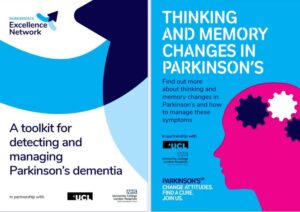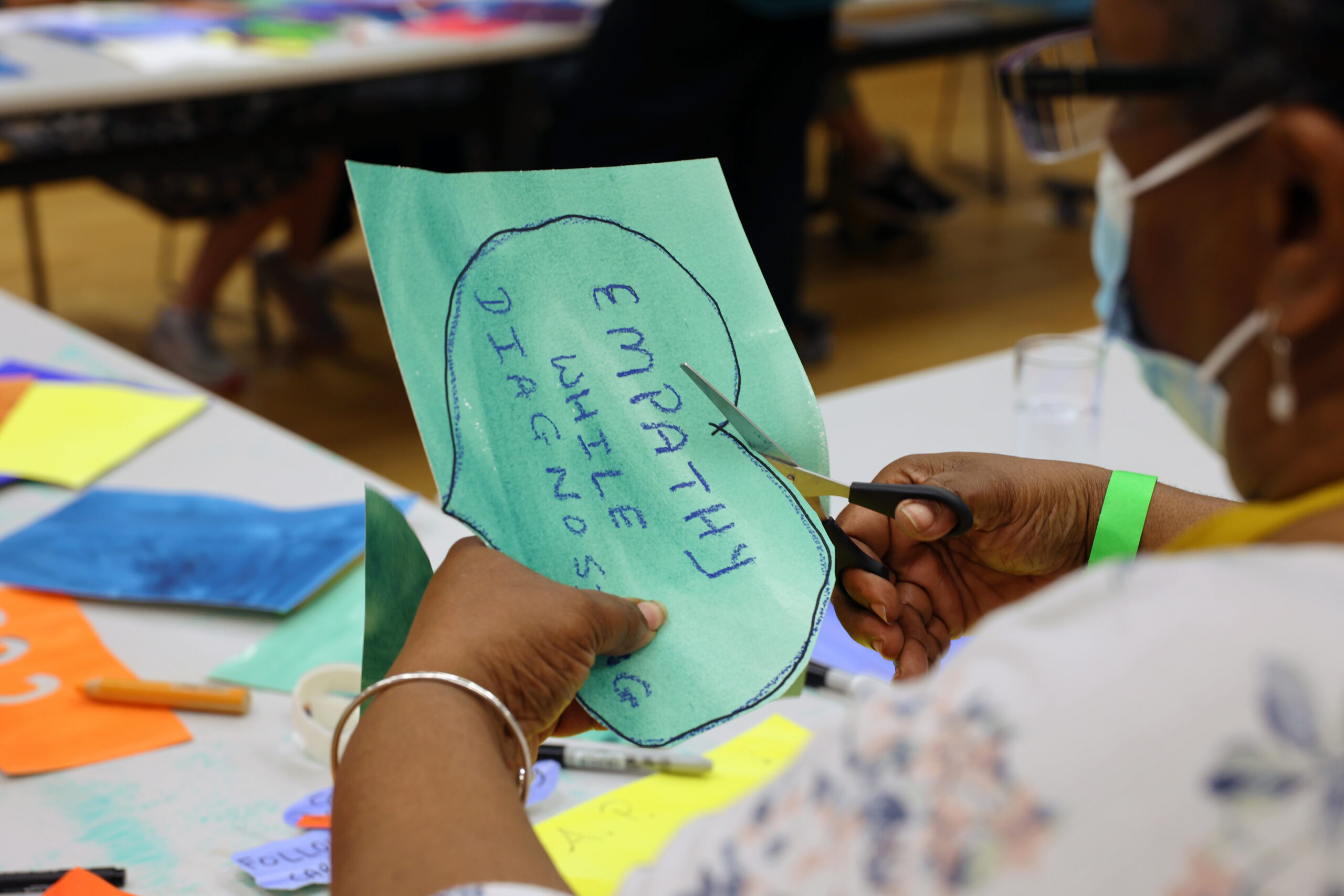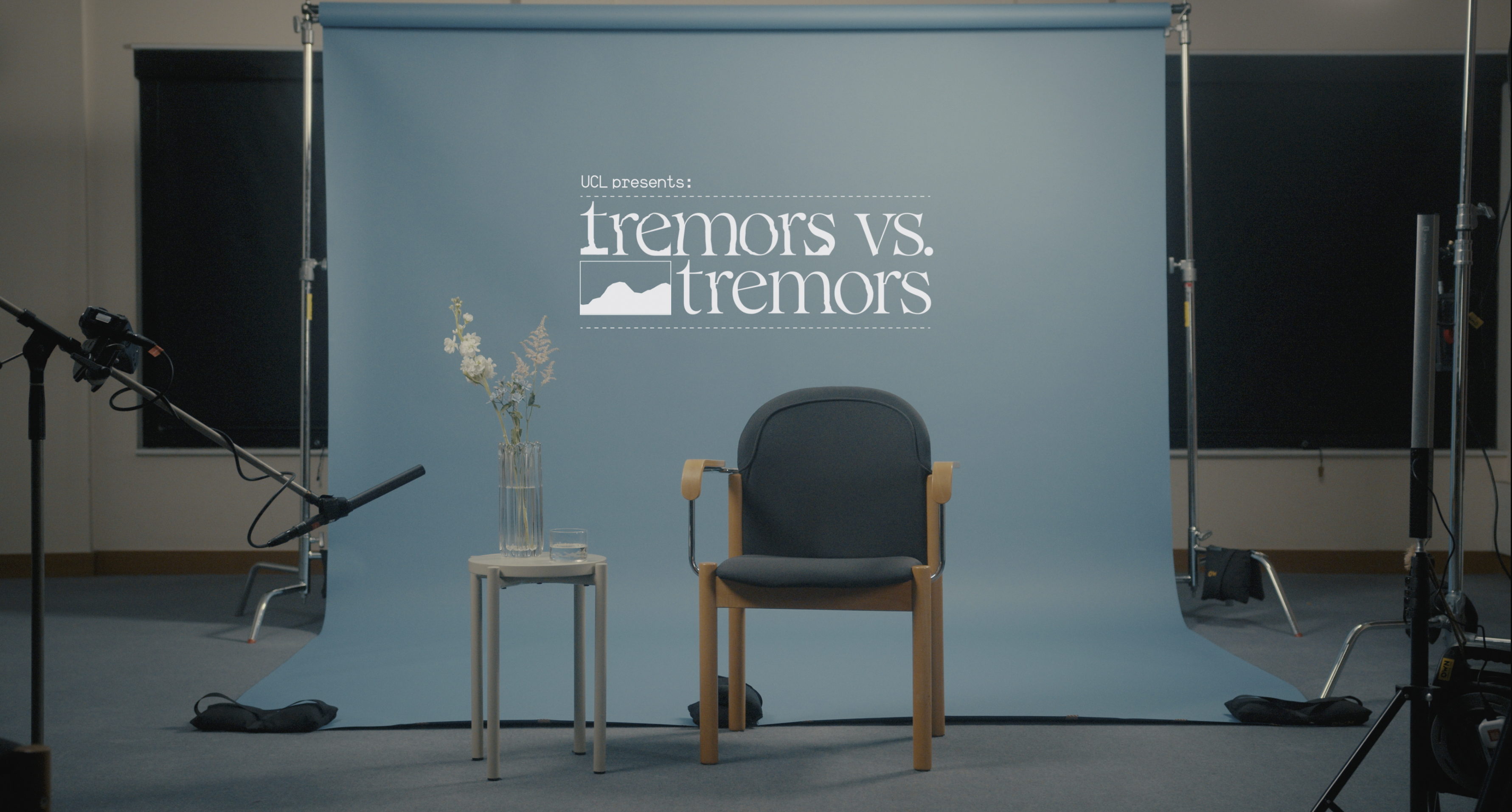The Patterns of Perception in Parkinson’s disease (PoP-PD) team launches two new booklets to open up conversations about Parkinson’s dementia
The complementary pair of booklets – designed for people living with Parkinson’s, and healthcare professionals – were co-developed by a multi-disciplinary team, including people living with Parkinson’s. They were launched at an in-person event with project collaborators and participants on Tuesday 11th July at Central Saint Martins, London, and via a digital campaign, led by Parkinson’s UK. The project, Patterns of Perception in Parkinson’s (PoP-PD), was led by Dr Rimona Weil, Neurologist at the National Hospital for Neurology and Neurosurgery, UCLH and Neuroscientist at UCL, alongside public engagement specialists at UCL, Parkinson’s UK and Central Saint Martins.
The new booklets were created to meet a key clinical need. People living with Parkinson’s are more likely to develop dementia than the general population. However, people living with Parkinson’s and their loved ones often find it hard to talk about dementia due to the taboo of dementia itself, and a lack of awareness of the support and guidance available. Healthcare professionals can also avoid discussions about Parkinson’s dementia in clinic, due to a perception that little can be done, a lack of training and/or concerns about negative reactions from patients.
Dr Weil and UCL’s Department of Imaging Neuroscience’s Public Engagement team were inspired to challenge these perceptions, and respond to this problem through a research engagement project. Together, they launched PoP-PD. With Central Saint Martins and Parkinson’s UK, they set out to co-produce a pair of booklets to support dialogue and awareness of Parkinson’s dementia and improve care and support.
The first phase of the project aimed to explore the fears and concerns associated with discussing dementia within the Parkinson’s community. Through a series of creative workshops at Central Saint Martins, led by artists Anne Marr and Ruairiadh O’Connell, the team brought together people living with Parkinson’s and their loved ones. Participants explored their associations with Parkinson’s dementia, how they would like to learn about the risks, and what excellent support throughout the process would look like. Insights captured from the workshops formed the basis of the two information booklets. These were then co-developed in focus group sessions, with lived experts and healthcare professionals from across the UK working in a range of clinical settings.
The resulting booklets have been adopted by Parkinson’s UK as their official resources on thinking and memory changes in Parkinson’s, which will enable them to reach many people living with Parkinson’s and those working in the Parkinson’s community.
 Both booklets are freely available online and in print:
Both booklets are freely available online and in print:
- Thinking and memory changes in Parkinson’s. Designed for people living with Parkinson’s and their families, this booklet provides information and support about Parkinson’s dementia.
- A toolkit for detecting and managing Parkinson’s dementia. Designed for healthcare professionals, this booklet provides practical information on the diagnosis and management of Parkinson’s dementia and dispels the idea that there is nothing that can be done about Parkinson’s dementia.
Dr Rimona Weil, Neurologist at the National Hospital for Neurology and Neurosurgery, UCLH and Neuroscientist at UCL, said:
“I found that both in my clinical work and my research programme, people with Parkinson’s didn’t want to talk about dementia. This project has allowed us to open up these challenging conversations. We learned from talking with people with Parkinson’s, how they wanted these conversations to happen. By including Parkinson’s experts from around the UK, we were able to include the very best guidance on how to treat Parkinson’s dementia in the clinic. These booklets mean that people with Parkinson’s dementia can now access treatment and support that can make a meaningful difference to their lives; and they may be more open to taking part in research which aims to understand how dementia in Parkinson’s happens.”
Claire Bale, Associate Director of Research, Parkinson’s UK said:
“Dementia is a major concern for people with Parkinson’s and their loved ones, and yet too often these fears go unspoken. This stigma prevents people getting the support they need and limits research to develop better therapies and support. We were delighted to collaborate on this project which used creativity to break down the barriers to discussing dementia. The resources it has produced, co-created with people living with Parkinson’s, are wonderful and will help open up conversations on this vital issue.”
Joanne Thomas, Public Engagement Manager at UCL’s Department of Imaging Neuroscience, said:
“We wanted to ensure that the voices of people most affected by Parkinson’s were at the heart of this project. Therefore, we involved people with lived experience of Parkinson’s at every stage, from planning the project, to participating in the workshops and co-designing the booklets. We’re so grateful to everyone who has been involved in the project for your time, expertise and thoughtfulness – thank you.”
You can read more about the project here, and watch a short film capturing the process, produced by Gareth Johnson. This project was funded through the Wellcome Research Enrichment – Public Engagement Fund. It builds upon the successful outcomes from a previous Patterns of Perception collaboration. In 2020, the earlier version of the project aimed to find better ways to dispel misconceptions about the experiences of those living with Parkinson’s disease through dance and art.





